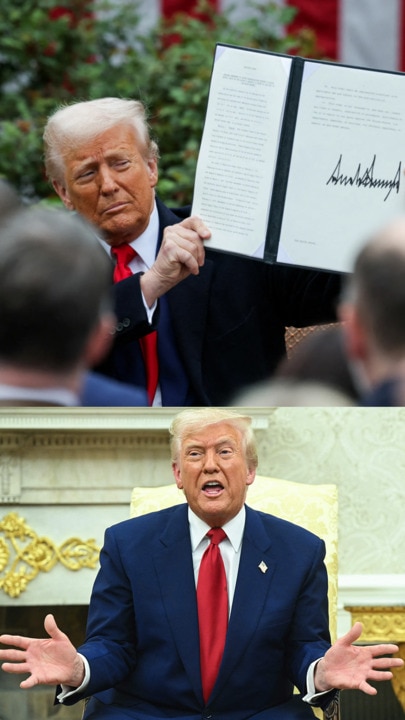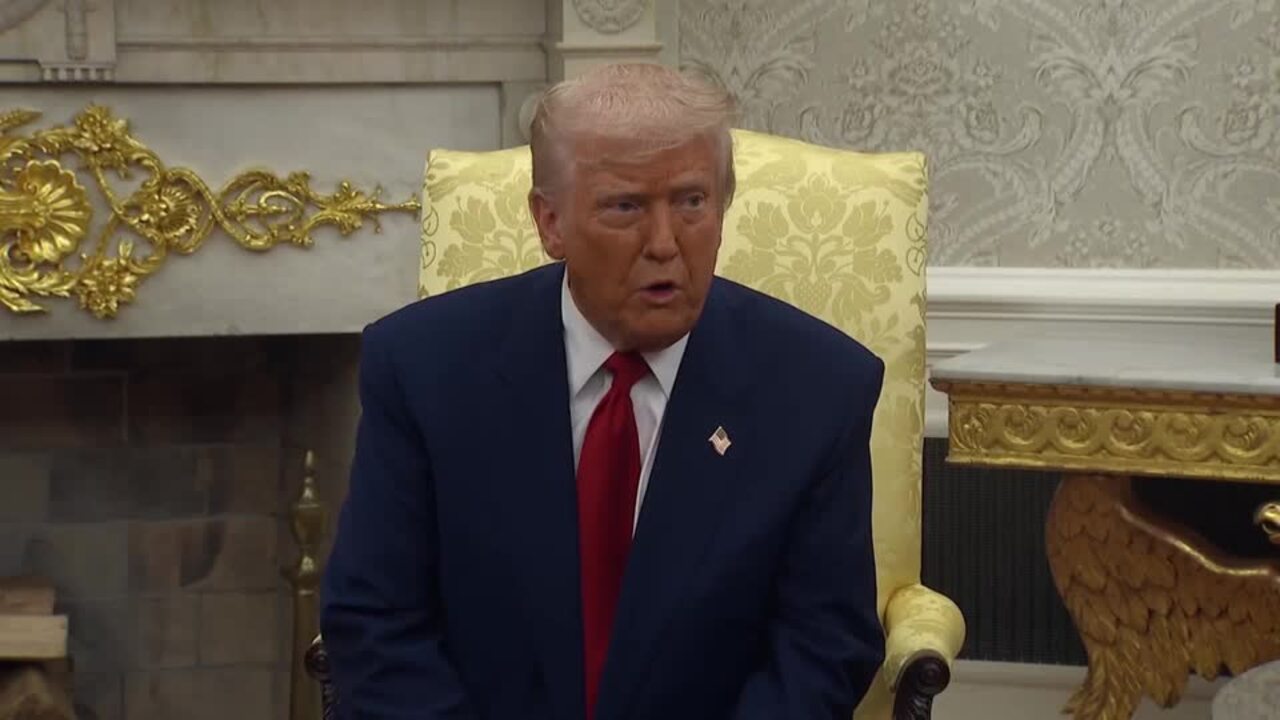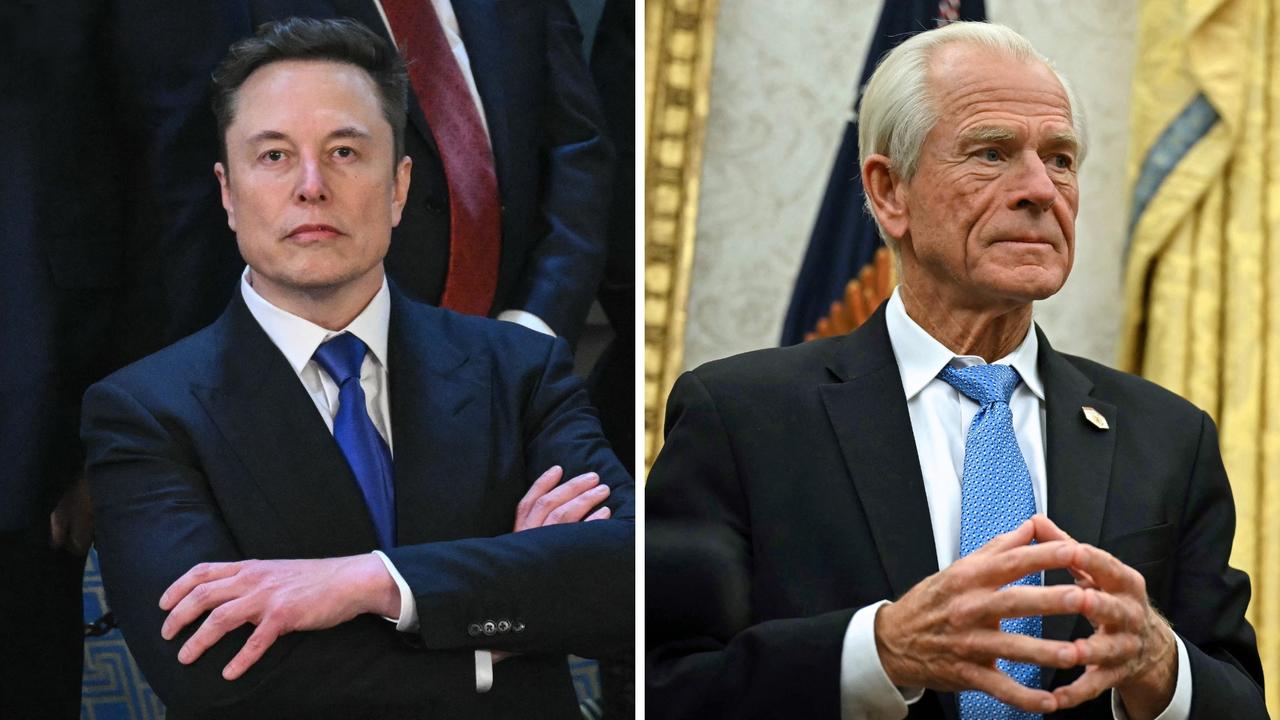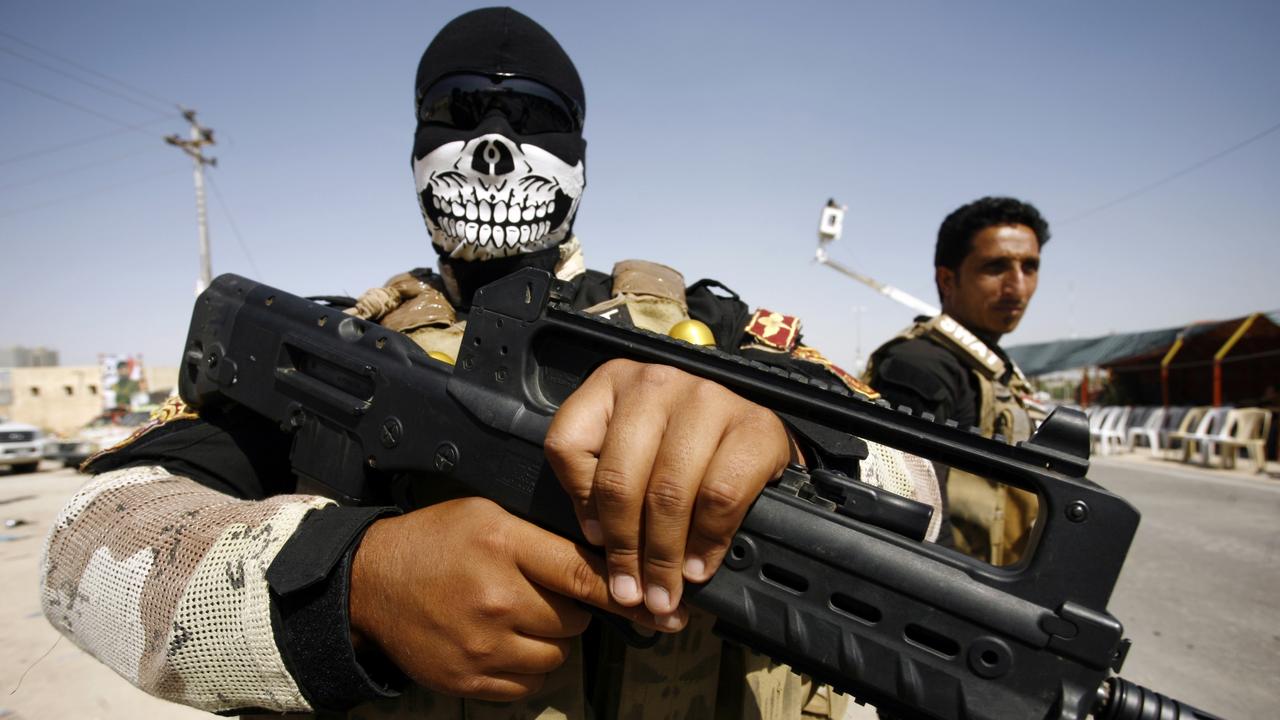Trump has dared Beijing to blink first: what if it doesn’t?
Trump is forcing a trial of strength with a rival not known for submission and we can only wait to see if the No 2 economic power bows to No 1, with unpredictable, dangerous consequences.
President Trump has hastened the international showdown that could define his presidency: conflict with China.
His threat to levy an extra tariff of 50 per cent on top of the 34 per cent announced on “liberation day” unless Beijing backs down from its retaliatory measures amounts to economic shock and awe.
A refusal to negotiate further with China suggests a president dug firmly into his tariff trench and willing to take the highest level of risk with the economy to stay there.
Whenever Trump has found himself in a battle throughout his business and political career, he has always reached for the biggest weapons he could lay his hands on. As president of the US, in a non-military conflict, he can wield the largest economy and the strongest currency, which in almost every case would prove overwhelming.
America’s main rival has some powerful economic weapons of its own, however, not least the ability to devastate some of the biggest names in US computing and electronics such as Apple, Intel, Tesla and Qualcomm, all of which rely on China for a huge part of their business.
So far it is Trump who has done the damage. A month ago, Apple was worth US$3.6 trillion. As of Monday afternoon, it is worth about $2.7 trillion.
The roots of Trump’s desire to “get even” with China run deep, back to his disgust at the country being allowed to join the World Trade Organisation in 2001 and accelerate the hollowing-out of US manufacturing that marked the era of globalisation.

His more immediate motivation dates from the pandemic. Trump blames China for unleashing the disease and wrecking his chances of re-election in 2020, while at the same time highlighting the US’s reliance on China for drugs and other supply chains.
President Biden also saw these trade imbalances as a significant security threat and began a reset by more conventional means, for example by investing $280 billion in his Chips Act to encourage computing manufacturing to return to the US. One of the side effects of Biden’s massive investment legislation was inflation, for which he and his party paid the price in last year’s election.

Where Biden went for a longer-term and more predictable readjustment, Trump is attempting to force a realignment of several decades of trade practice almost overnight.
Inflation is almost certain to follow and, with it, likely Republican losses at the ballot box in the midterm elections next year. But looking that far ahead is absurd at the moment because there is no telling what the level of tariffs will be at the end of the week.
The economic upheaval might ease with more predictability and also if the ultimate point is clear. President Xi and the rest of the world are trying to work out if the tariffs are a cudgel to force concessions on free trade or a new long-term US commitment to protectionism, designed to fund tax cuts and a domestic manufacturing boom.
Trump is forcing a trial of strength with a rival not known for submission and the world can only wait to see if the No 2 economic power bows to No 1, with unpredictable and dangerous consequences if this stand-off continues.
The Times



To join the conversation, please log in. Don't have an account? Register
Join the conversation, you are commenting as Logout